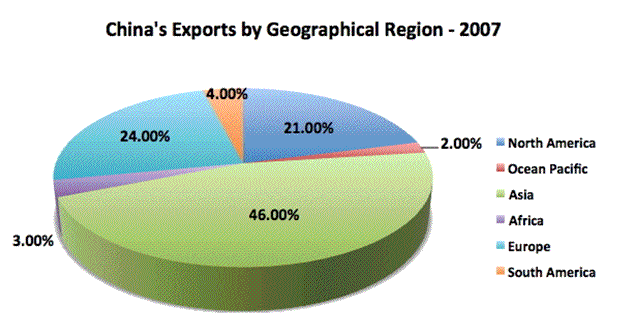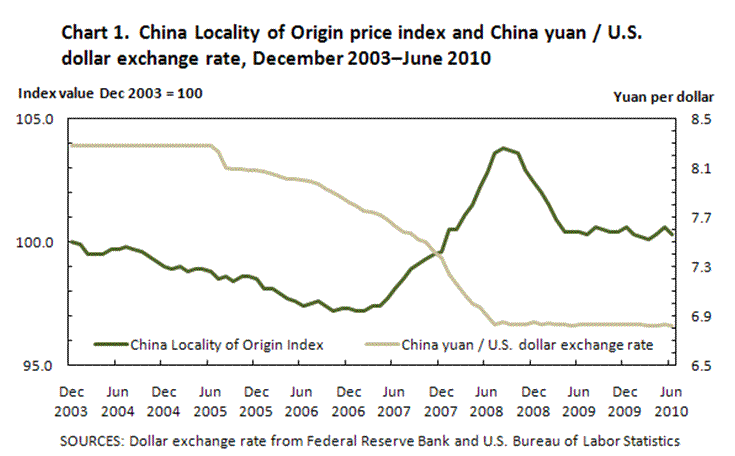The Great Currency Wars, Return of 1930’s Style Protectionism?
Currencies / Protectionism Nov 19, 2010 - 11:38 AM GMTBy: Andy_Sutton
 On 9/18/2009 I wrote an editorial called ‘The Quiet Grab’. It discussed China’s deal cutting on the natural resources front, specifically in the rare earth element and petroleum sectors. The article pointed out that the Chinese were quietly provisioning ready supplies of strategic assets for the turmoil that lay ahead, particularly arising from a disdain and mistrust of paper instruments, especially currencies. With the USFed’s second iteration of quantitative easing now underway, the currency battles are starting to heat up and so is the rhetoric. This week we take a look at the ongoing (and intensifying) currency wars, strategic assets, and why we are behind the proverbial eight ball.
On 9/18/2009 I wrote an editorial called ‘The Quiet Grab’. It discussed China’s deal cutting on the natural resources front, specifically in the rare earth element and petroleum sectors. The article pointed out that the Chinese were quietly provisioning ready supplies of strategic assets for the turmoil that lay ahead, particularly arising from a disdain and mistrust of paper instruments, especially currencies. With the USFed’s second iteration of quantitative easing now underway, the currency battles are starting to heat up and so is the rhetoric. This week we take a look at the ongoing (and intensifying) currency wars, strategic assets, and why we are behind the proverbial eight ball.
The Return of 1930’s Style Protectionism?
This morning, the head of the World Trade Organization (WTO), General Pascal Lamy, weighed in with that group’s position on currency wars.
Generating employment "is at the heart of the strategy of some countries to keep their currencies undervalued," Lamy said in New Delhi. "Just as it is also at the heart of other countries' loose monetary policies."
Competitive devaluations, which have raised fears of a global currency war, could trigger "tit-for-tat protectionism", he told a business audience.
What Lamy and most economists and policymakers neither want to acknowledge nor deal with is that their great paradigm of ‘borrow and spend to prosperity’ is broken. His argument that countries like China want to keep currencies cheap to export is absolutely true. His position that the USFed’s decision to try to keep the Dollar cheap is borne out of a desire to ‘stimulate’ the economy is also spot on. Where he misses the boat are on the causes for the current predicament, the very existence of his employer being front and center as a major contributor.
China is the World’s biggest Wal-Mart
Not only do the Chinese provide the vast majority of the consumer goods on Wal-Mart’s shelves, they’ve stolen a page or two from the mega-retailer’s playbook. Or perhaps Wal-Mart swiped China’s modus operandi, but it really doesn’t matter. China has for years now been flooding the developed world with cheap goods and, with the cooperation of first world politicians, has been driving manufacturing jobs to the Third World. This has been done much in the same way Wal-Mart has destroyed thousands of Mom and Pop stores throughout the nation. They go into an area, undercut local businesses on price, put them out of business and then establish monopoly power. They don’t even need to raise prices once the competition is destroyed. Economies of scale produce sizable profits all on their own.
China is doing much the same thing. This is one of the reasons they have been ready and willing to buy our Treasuries for so long. It provided them with the ability to undergo their very own industrial revolution and establish a bridgehead as the world’s manufacturing power. In the process, how many American industries have fallen by the wayside? Too many to count. And we’re not their only trading partner either. Less than 25% of China’s exports actually made it to North America in 2007. That is a staggering revelation for most people, as we tend to believe that the Chinese somehow ‘need’ us to consume their products.

But China has her own problems. Their cheap currency, while enabling significant export gains, has also touched off a wave of domestic inflation, which is being manifested right now in politically sensitive soaring food prices. Americans should take note here.
America’s Ridiculous Demand
Perhaps the most ironic occurrence in the early stages of the currency war is the exhortations by American politicians and central bankers. They are demanding that China allow its currency to appreciate, which would in effect make it easier for American companies to export to China. We do export a significant amount of heavy equipment to China, as does Germany. After all, someone needs to provide the Chinese manufacturing machine with capital equipment.
But there is much more to this than meets the eye and that is where we all need to be paying attention. Think about what Bernanke, and many members of Congress are asking for. When they demand that China allow their currency to appreciate, they are in effect demanding that the Dollar be depreciated. They are saying essentially “Yes Mr. Jiabao; we want the Dollar to be worth less so Mr. and Mrs. America will have to pay more for your imported goods when they go to the store”. This flies totally in the face of the robotic ‘A strong dollar is in the national interest’ phrase uttered by Hank Paulson in what seems to be an eternity ago now.

In this reality lies the essence of our current problem. We have a choice. Our government is taking a stance that we can create jobs by depreciating the Dollar and somehow that is going to overcome the massive increase in costs of imports. This might work if we weren’t such an import-driven society, but that is certainly not the case. And it isn’t just the Chinese we import from either. Think crude oil and refined gasoline products. At current import rates and oil prices, we import almost $900 Million per day just in petroleum. That is around $27 Billion per month. We’ve seen what the devaluation of the Dollar has done to the jobs picture in just the past five years. Does any person with two brain cells to rub together really expect this nonsense to work?
Strategic Assets Trump Cash?
We are reaching the point where I believe the quiet grab by the Chinese over the past decade in terms of strategic assets is about to pay off. Anyone who runs a manufacturing operation knows that stable input prices and supplies are a key component of that business’ long-term success. Obviously any manufacturing operation built using the petroleum paradigm is going to use plenty of black gold. The same goes for a world that is hooked on handheld gadgets and green technology. Most hybrid owners don’t realize the amount of exploration, provisioning, and drilling/mining that goes into finding the materials necessary to make the high tech components of their vehicles. The same goes for the owners of the vast majority of consumer electronics. We just don’t think about it. The Chinese have. By virtue of their location, they have roughly 95% of the world’s rare earth elements at their disposal. They’ve locked down supplies of crude oil to fuel their manufacturing empire, at least in the short to medium term. Who really thinks the United States is going to win a trade war, a currency war, or any type of economic war with the Chinese at this point?
Given these realities, and how all of these circumstances are woven together, we can already be pretty sure of how the great currency wars will turn out. Those with the advantages will use them and those at a disadvantage with posture, pander, and talk. But in the end, talk is cheap.
By Andy Sutton
http://www.my2centsonline.com
Andy Sutton holds a MBA with Honors in Economics from Moravian College and is a member of Omicron Delta Epsilon International Honor Society in Economics. His firm, Sutton & Associates, LLC currently provides financial planning services to a growing book of clients using a conservative approach aimed at accumulating high quality, income producing assets while providing protection against a falling dollar. For more information visit www.suttonfinance.net
Andy Sutton Archive |
© 2005-2022 http://www.MarketOracle.co.uk - The Market Oracle is a FREE Daily Financial Markets Analysis & Forecasting online publication.



